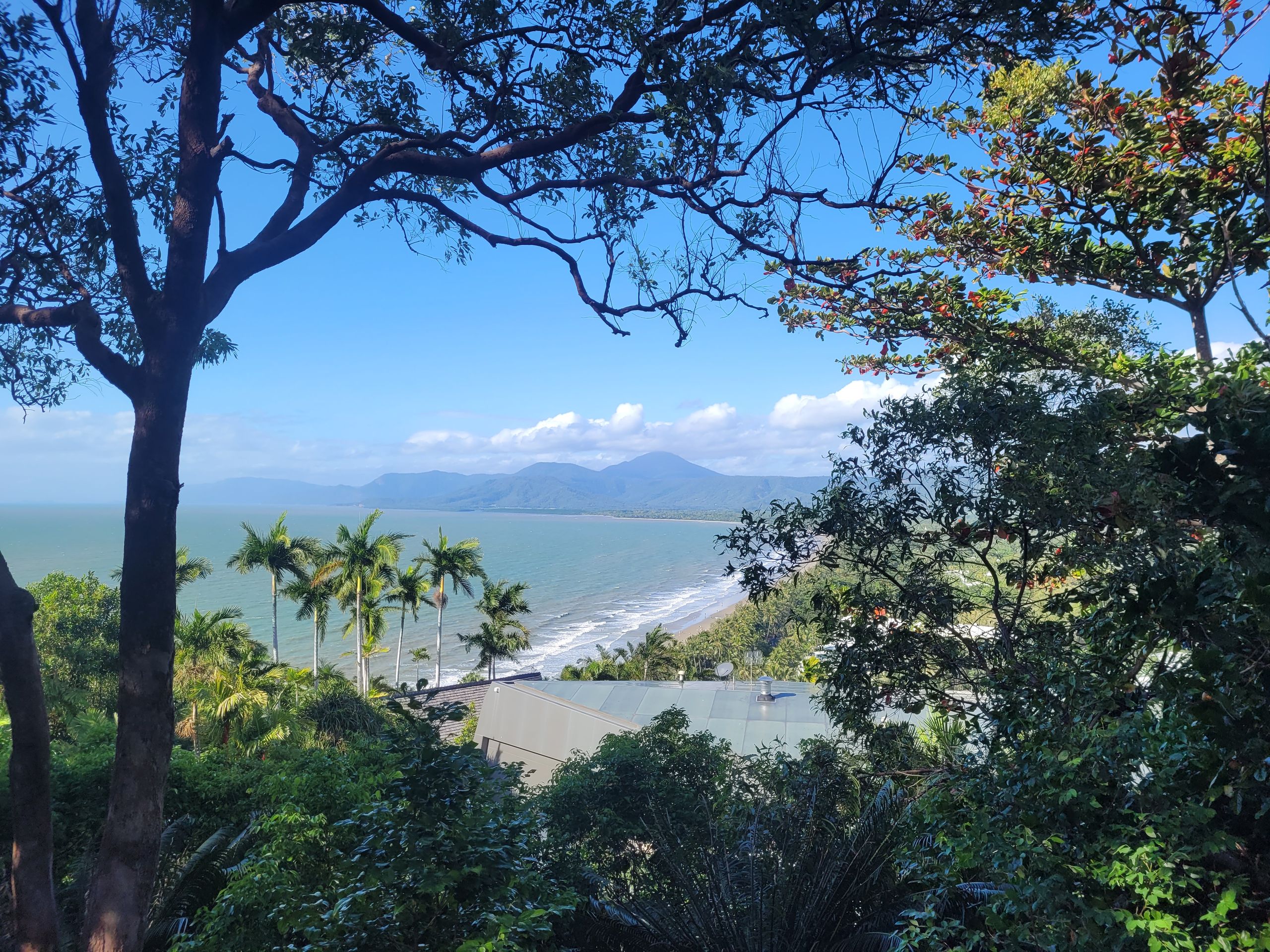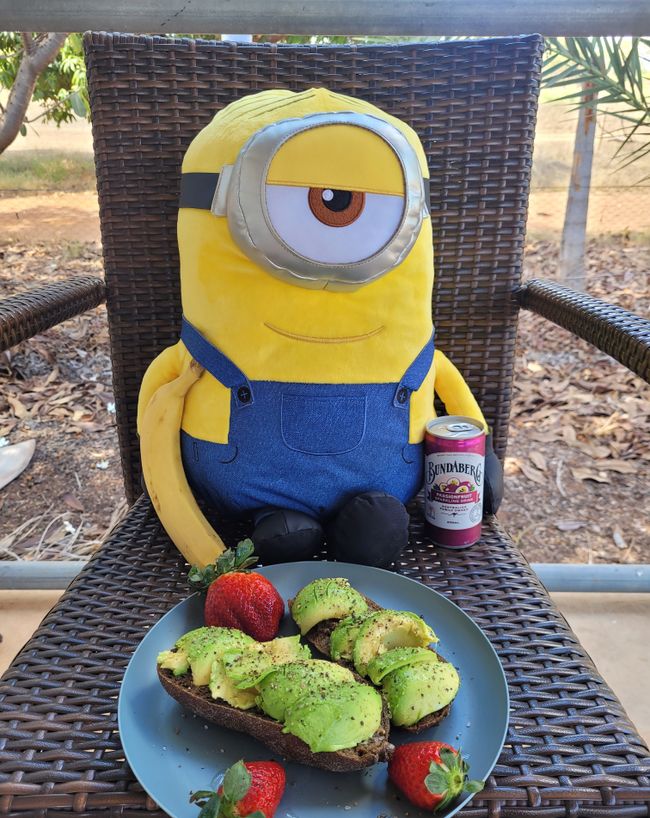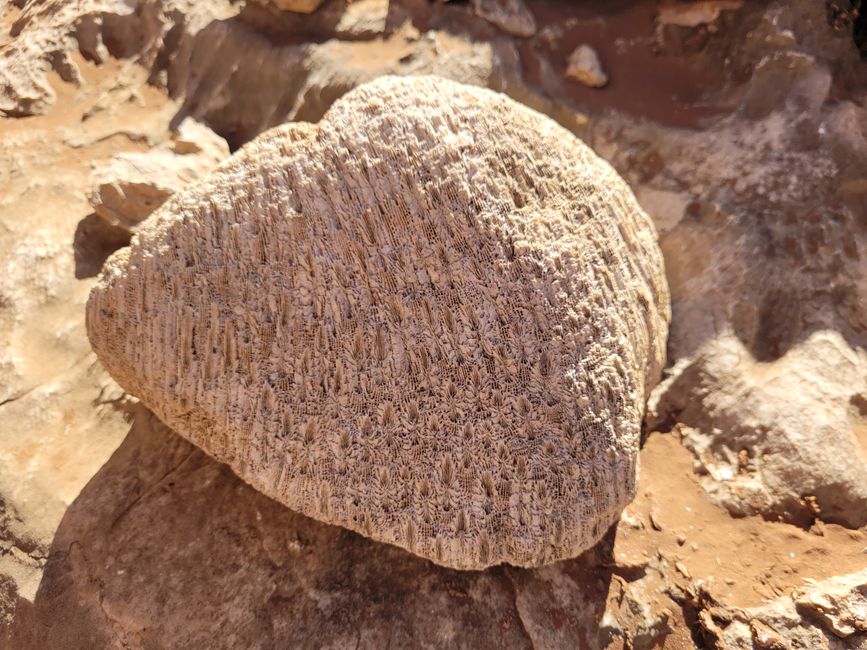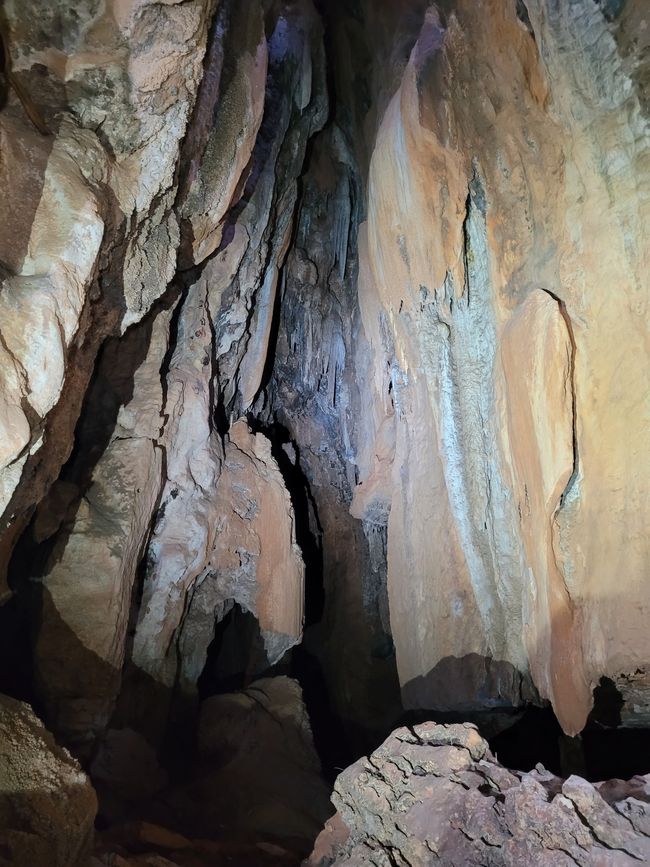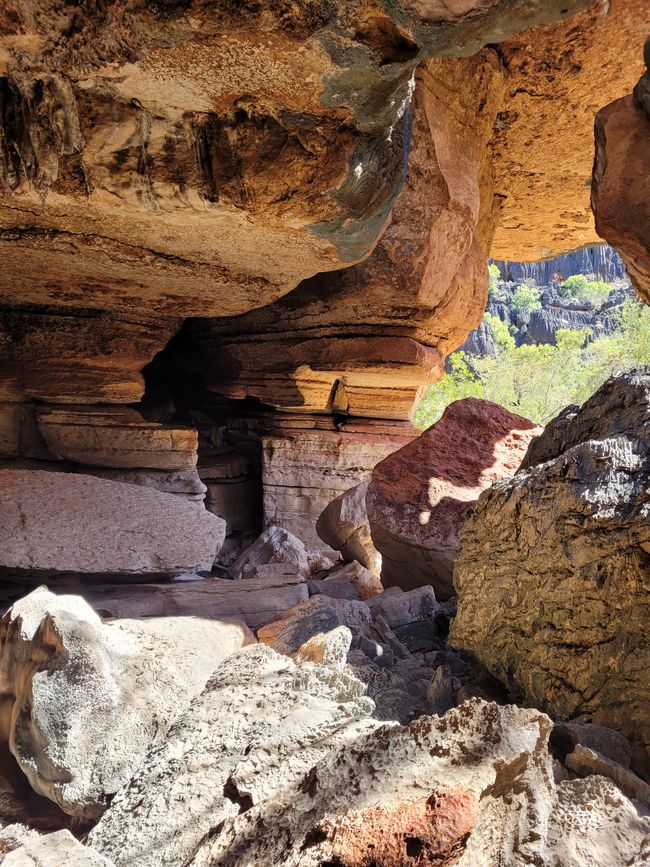Day 98 Mimbi Caves
Nai-publish: 18.09.2022
Mag-subscribe sa Newsletter
Leaving Mimbi Caves Campground to just drive around the corner to the Mimbi Cave Tour start. You can visit the Mimbi Caves only with a tour. After a short smoking ceremony and a warm welcome to the Mimbi Caves, our guide Rose (who is also the campground manger as well as big family manager with as many as 24 grandchildren) walked with us towards the caves telling about the nature, plants, trees, bush medicine, traditions but also history. She was for example lucky to grew up in the times of lost childhood (aboriginal children taken from their families into western missions, where they lost family & tradition contact) with a farmer who fed and protected them, so she could remember names, families and traditions, while other family members weren´t so lucky and are partly still searched, nowadays with help of DNA-tests.
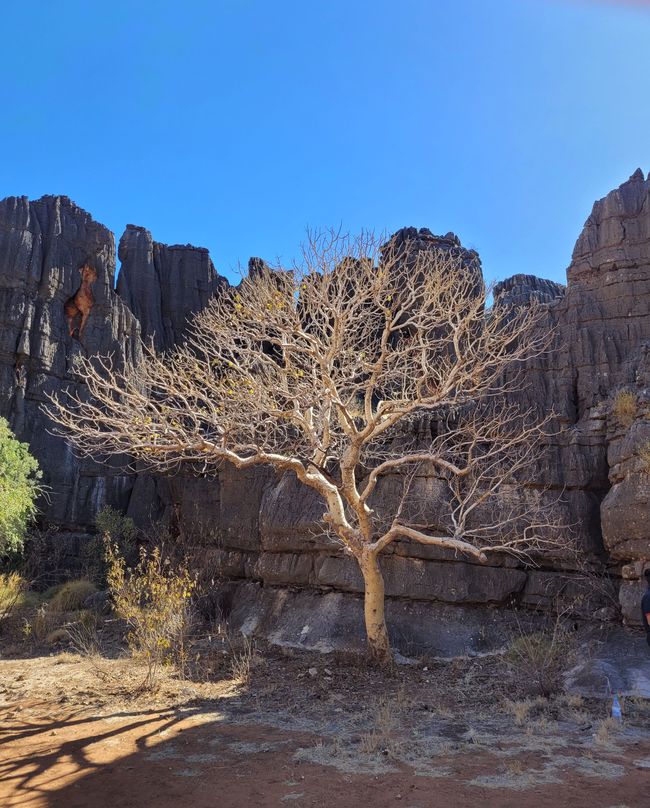
At the start of the walk there is a hut from the 1980s, build by 'two crazy Germans' who were called like that because it were 2 women travelling without being accompanied by a man. It is aboriginal territory so the women had to leave, but the hut and the rock shelter where they sat, is still there.
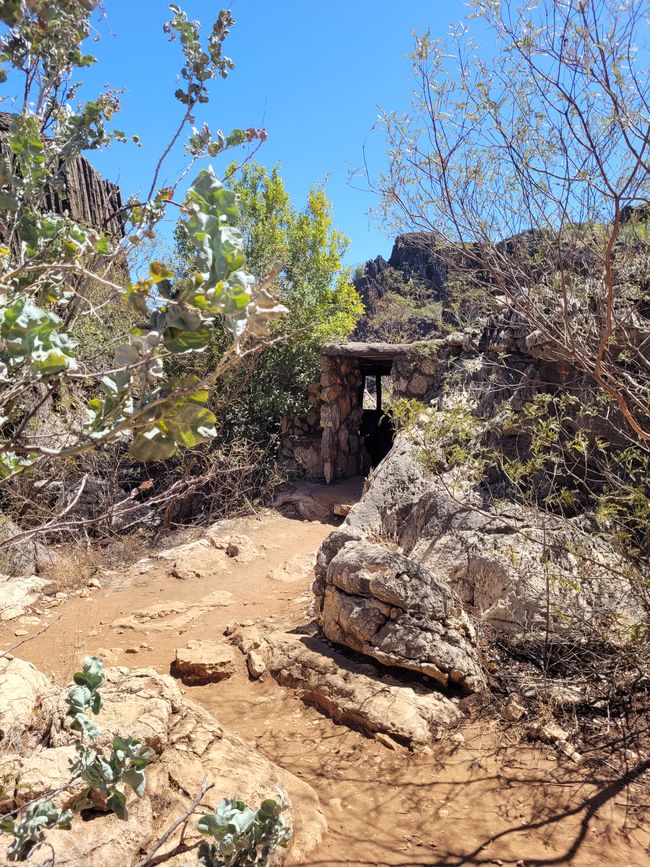
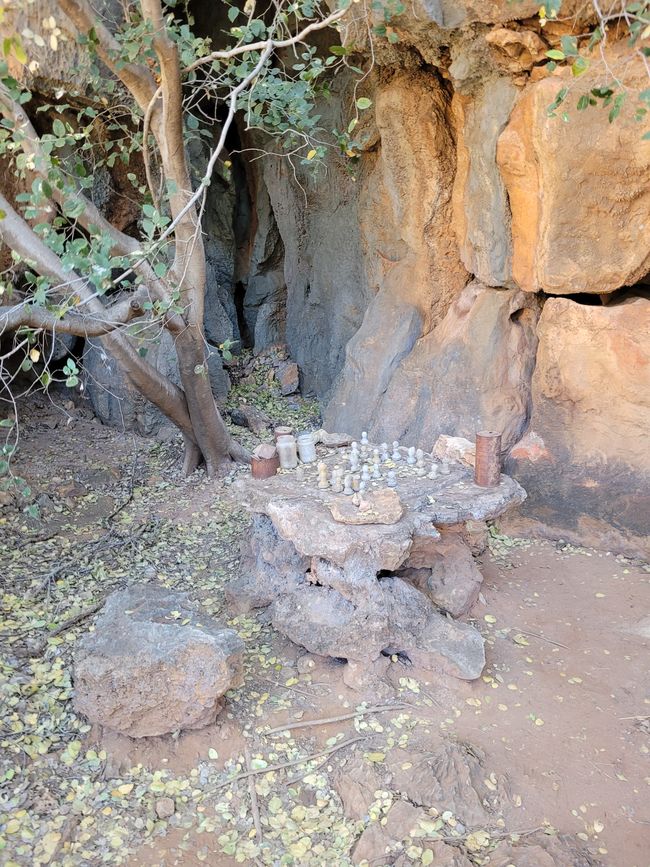
The Mimbi Caves have lots of fossils and the archaeological investigations still go on to discover more. The Mimbi Caves are supposed to be the largest in Western Australia and by far not everything has been unearthed. After having thrown a stone into the little pool to inform the rainbow serpent we are here, we enter the cave system by two different entrances - narrow and over rocks a good torch is pretty helpful. In the first cave is no water, but great views especially at the end with more light.
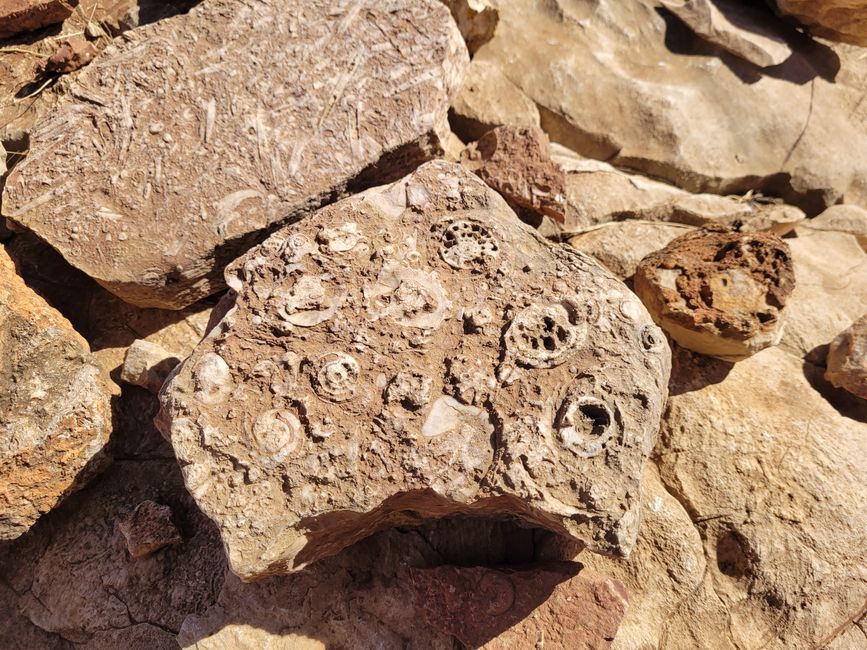
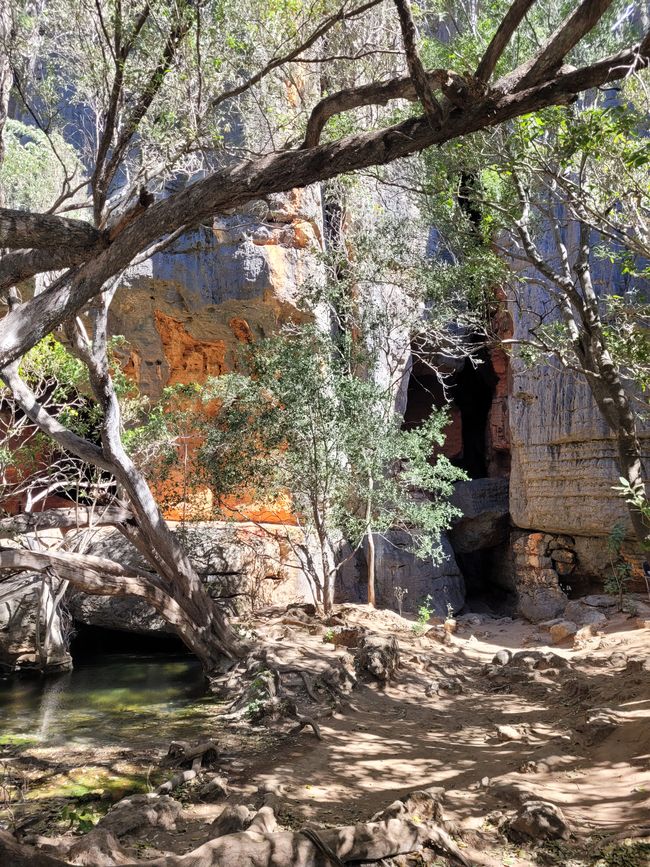
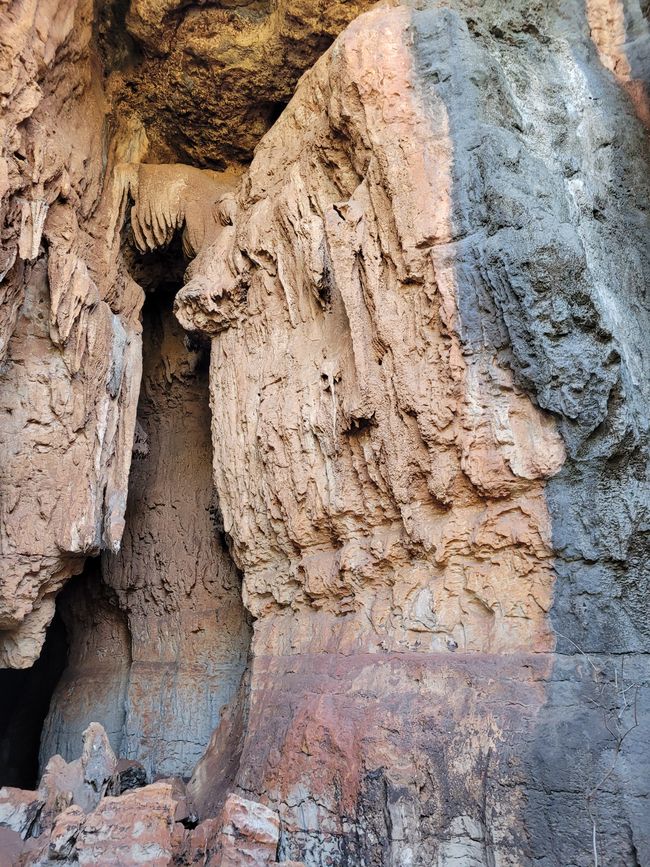
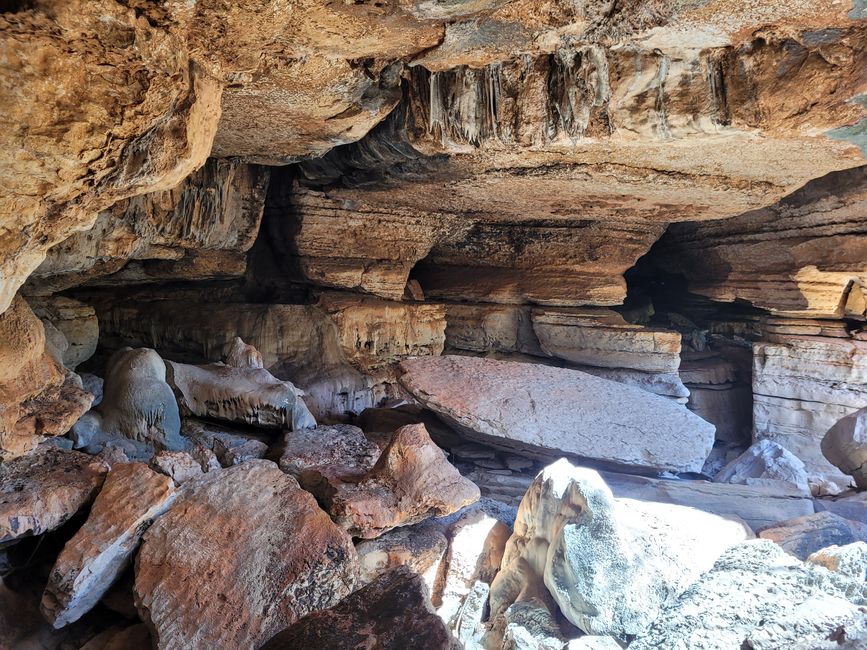
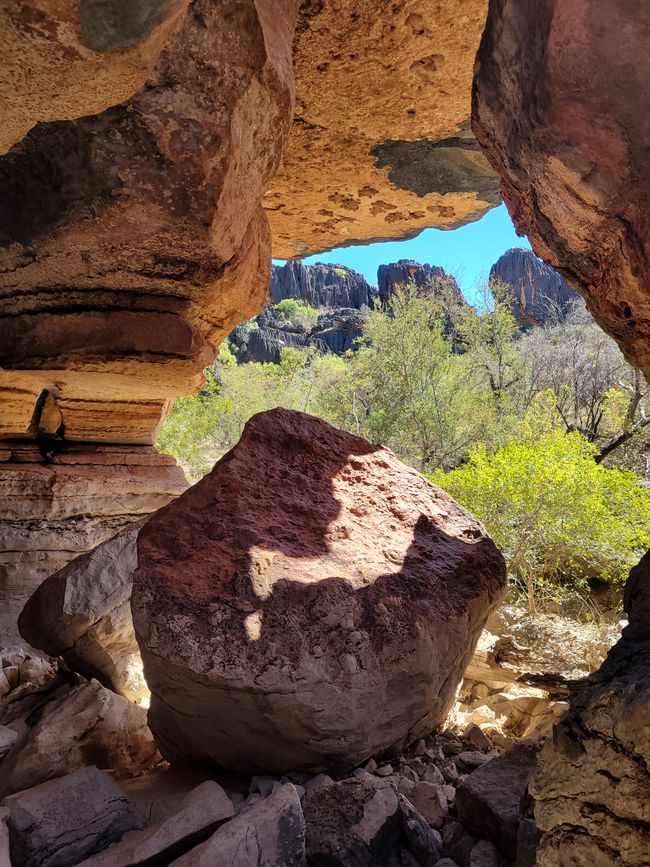
The second cave is the one with the water and the aboriginal art. Our guide Rose told us the meaning of the aboriginal art in this cave: it is about ghosts, which only children can hear - the good ghost as well as the bad ghost which makes children walk away. There is also a painting of the rain men, but Rose told us that the knowledge what to sing has been lost in the community. Throughout the walk she mentions the problem of transferring knowledge from the older to the children and grandchildren who are mostly not interested in it any more.
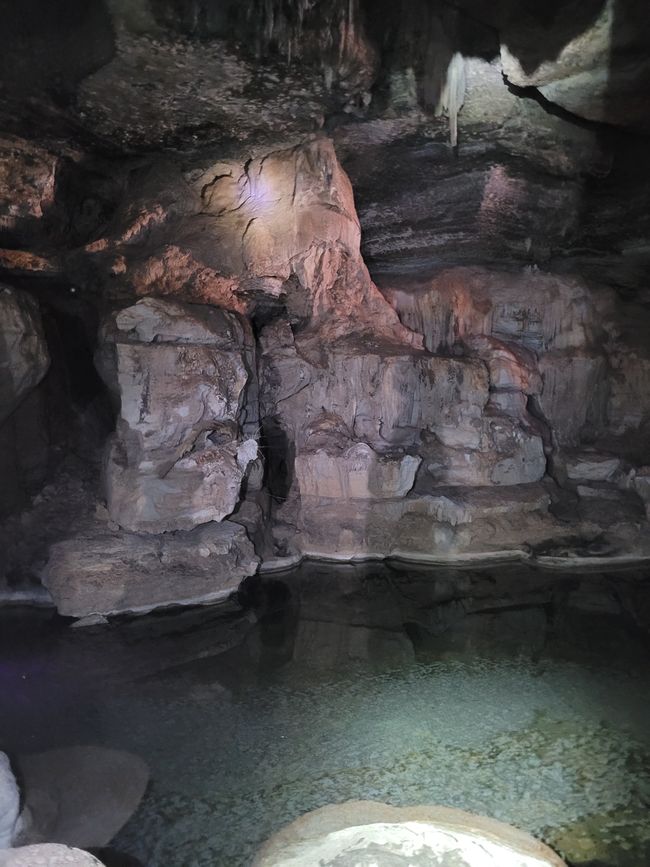
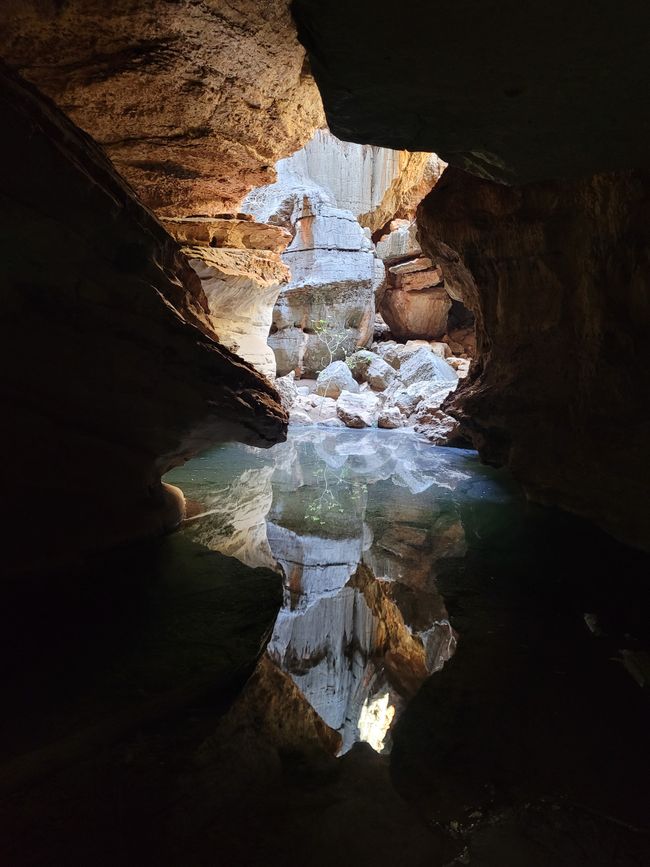
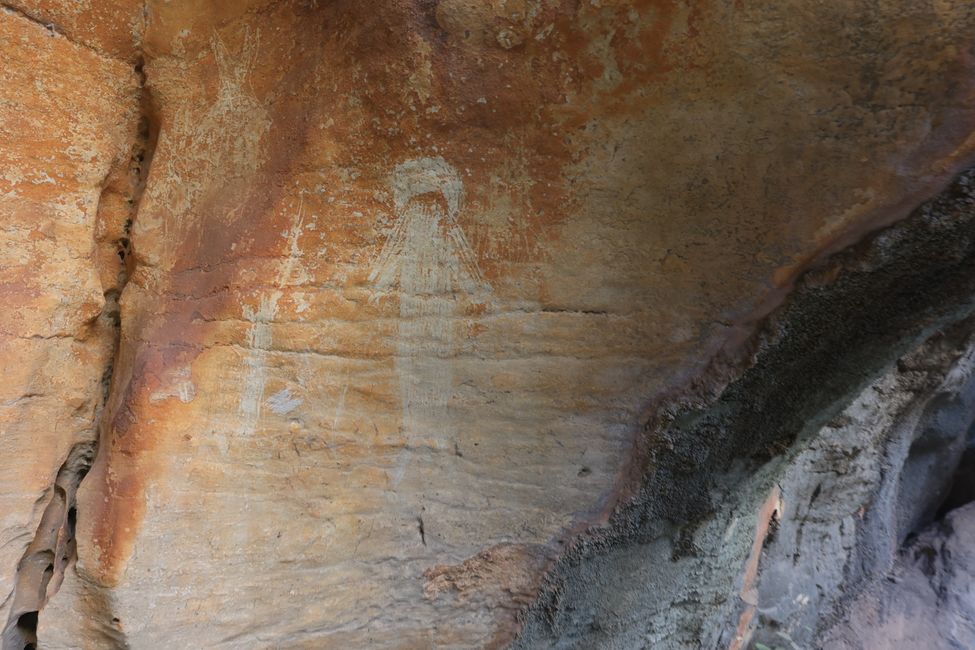
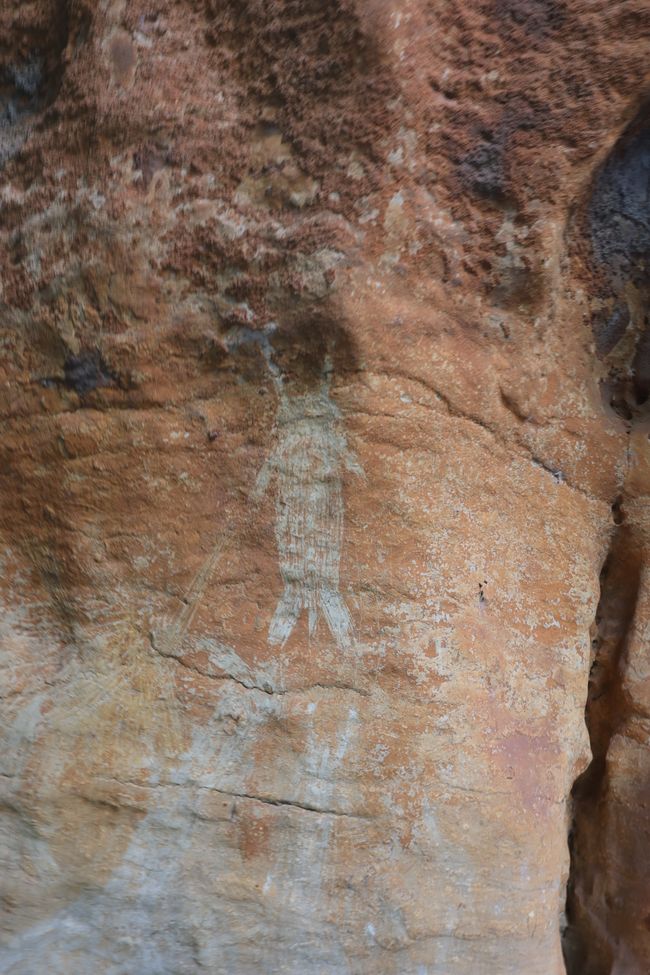
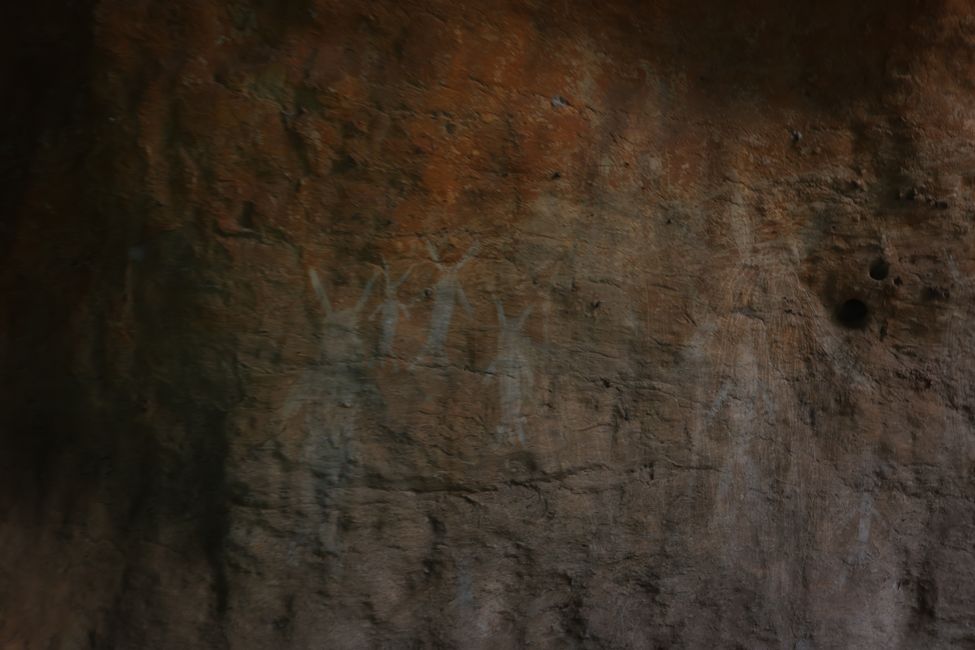
The tour ends with some morning tea and sweat damper as well as some information about aboriginal marriage & skin roles as well as customs, e.g. mother-in-law and son-in-law never look at each other or communicate directly with each other - some traditions would maybe also solve modern times issues...
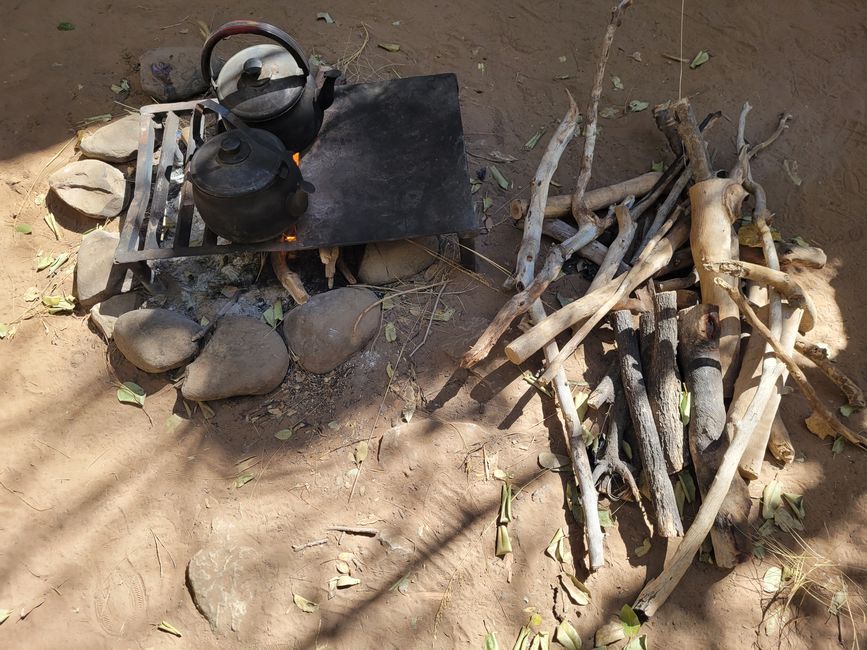
After the tour we drive back to Broome and enjoyed the sunset at Cable Beach.
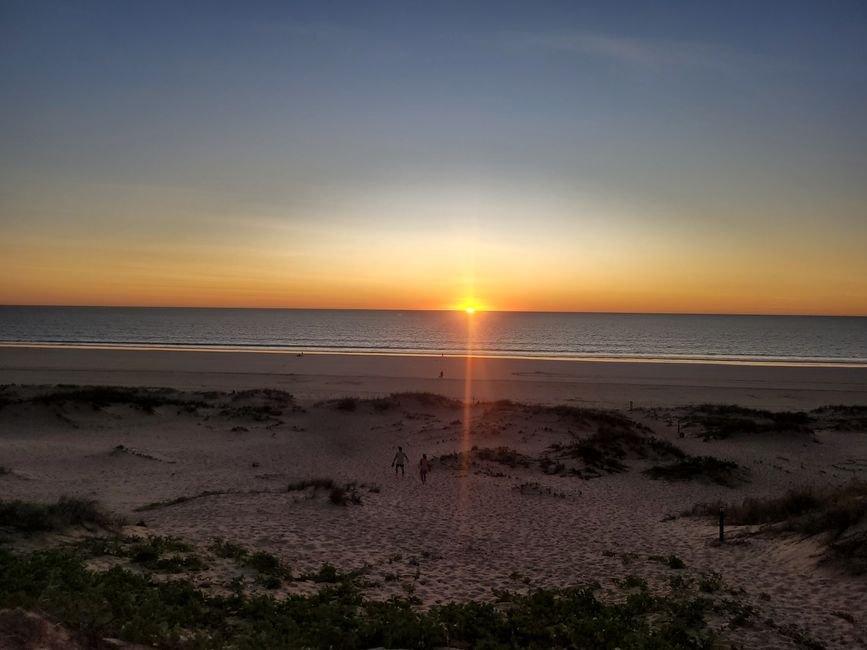
Mag-subscribe sa Newsletter
Sagot
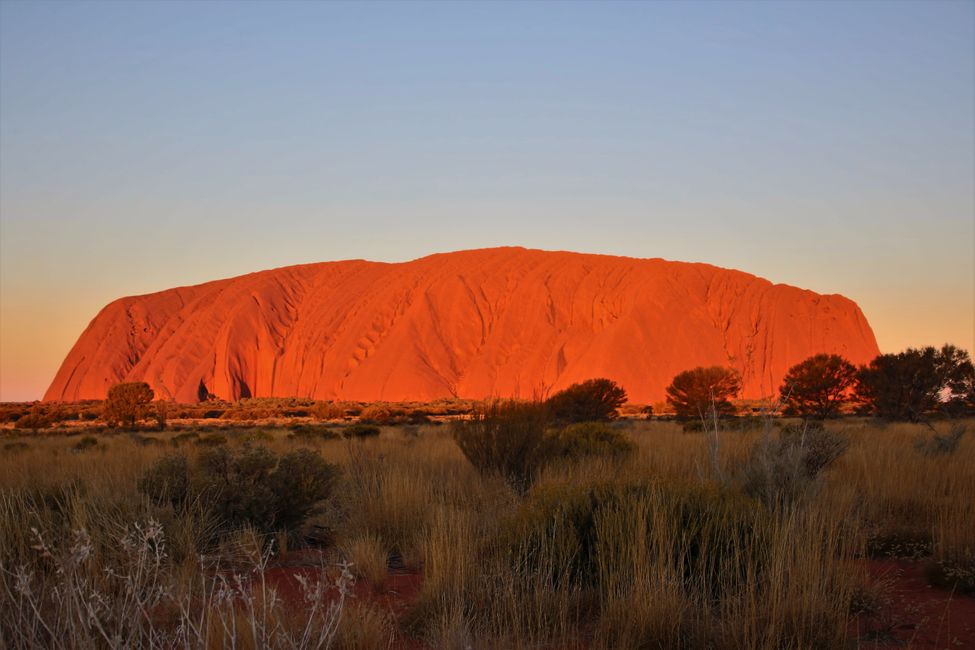
Mga ulat sa paglalakbay Australia
